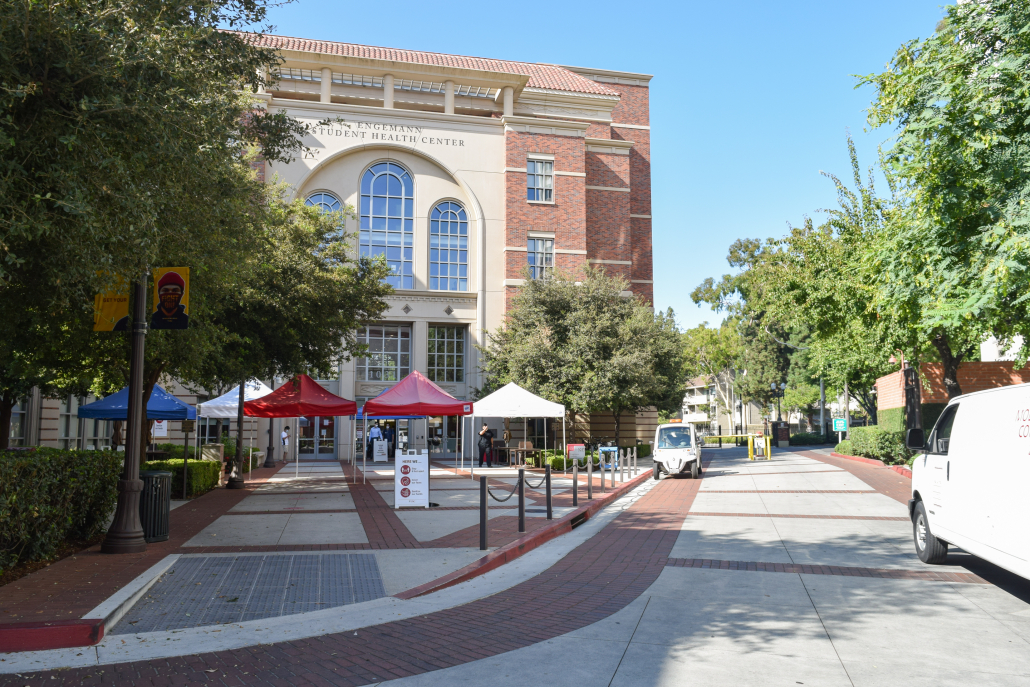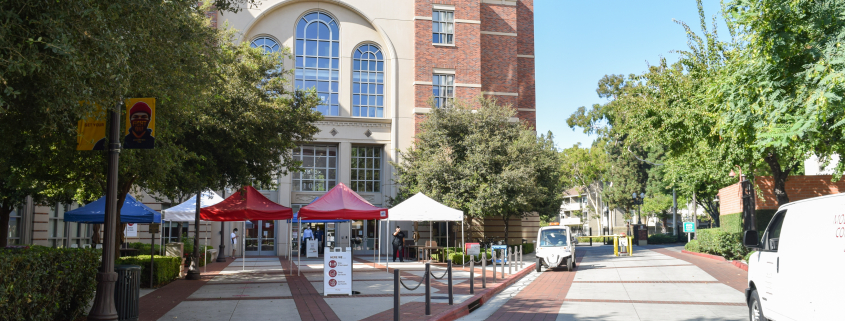Flu vaccination rates low among students

As the flu season approaches, USC Student Health seeks higher vaccination rates in the community and plans to continue its push for flu and coronavirus booster vaccinations, said Chief Health Officer Dr. Sarah Van Orman in a student health briefing Tuesday.
As of Tuesday, 35% of undergraduate students, 60% of staff and faculty and 45% of graduate students are vaccinated against the flu. However, Van Orman said it is likely that more students are currently vaccinated against the flu but have yet to upload their documentation.
“The deadline is fast approaching. We can expect to see the flu as early as Dec. 1, so we really want people to start planning their flu shots,” Van Orman said.
USC Student Health plans to send additional messages to those who have not received their flu vaccinations, Van Orman said. The deadline to receive the flu vaccination is Nov. 1.
Student Health hopes to reach a vaccination rate greater than 95% in the student community before the flu season begins in mid-December, Van Orman said, especially considering the two weeks after vaccination it takes to develop antibodies for the flu.
As the coronavirus continues circulating, students risk severe illness if they contract either the coronavirus or the flu, in addition to missing academic time, Van Orman said. Of the tests administered last week, 39 students and 2 employees tested positive for the coronavirus, yielding positivity rates of 0.1% and 0.2%, respectively.
“If students get the flu, that means they’re going to be out, potentially missing class, because they have to stay home,” Van Orman said. “There’s some studies from the University of Minnesota from a few years ago that say that the average student misses five to seven days of school just because of how serious an illness it is.”
Aside from decreasing the risk of coronavirus contraction and missing classes, receiving the flu vaccine can protect the community from flu spread in the winter and from individuals experiencing serious symptoms, Van Orman said.
Students may also file a religious and medical exemption for the flu shot, which students can access on their MySHR portal.
The University is currently providing booster shots for the coronavirus through pharmacy appointments at the Lyon Center for both Moderna and Pfizer. The Centers for Disease Control and Prevention recommends booster shots six months following full vaccination and for those with high-risk conditions or work environments. For those who received Johnson & Johnson, CDC officials also recommend a booster shot 2 months after full vaccination.
USC will contact applicable students in the next week, Van Orman said.
“Most people who got Johnson & Johnson actually need a booster right now, and they can get that either by getting another Johnson & Johnson, or they can mix and match for their booster,” Van Orman said. ”We’re going to be directly messaging anyone who got Johnson & Johnson in the next week, encouraging them to come in to get a booster shot.”
Van Orman encourages all students to receive a booster shot once the vaccine opens for their age group, even those who are not in immediate at risk groups because the shots can reduce the rate of breakthrough infections. Reduced levels of breakthrough infections lead to decreased spreading, stress and hospitalization, Van Orman said.
“What we’re seeing is, after about six to eight months, we’re seeing increases in the number of people that were having declining antibody levels with both of those vaccines, as well as more breakthrough infections,” Van Orman said.
Beyond vaccinations, Van Orman also shared resources available from the Relationship and Sexual Violence Prevention Services.
RSVP, an organization comprised of advocates available 24/7 for students who have experienced any form of sexual violence, provides immediate therapy services for situations including gender and power-based harm.
According to their website, all RSVP services are confidential and provide resources and accompaniment to specialty centers if forensic exams or rape kits are needed. Students can also access counseling and mental health services using Trojans Care 4 Trojans and the mySHR portal.

